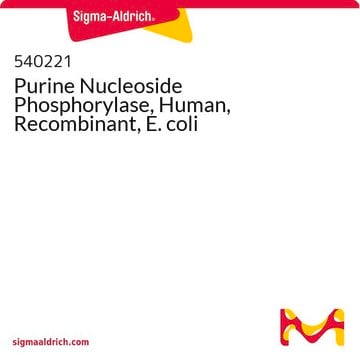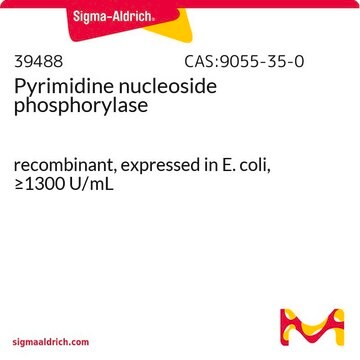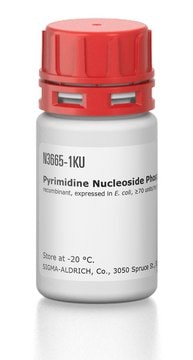53113
Purine nucleoside phosphorylase
recombinant, expressed in E. coli
About This Item
Recommended Products
recombinant
expressed in E. coli
form
liquid
specific activity
≥9 U/mL
storage temp.
−20°C
InChI
1S/C10H12N4O4/c15-2-6-7(16)8(17)10(18-6)14-4-13-5-1-11-3-12-9(5)14/h1,3-4,6-8,10,15-17H,2H2/t6-,7-,8-,10-/m1/s1
InChI key
MRWXACSTFXYYMV-FDDDBJFASA-N
Looking for similar products? Visit Product Comparison Guide
Application
Biochem/physiol Actions
Unit Definition
Storage Class
12 - Non Combustible Liquids
wgk_germany
WGK 3
flash_point_f
Not applicable
flash_point_c
Not applicable
Choose from one of the most recent versions:
Already Own This Product?
Find documentation for the products that you have recently purchased in the Document Library.
Active Filters
Our team of scientists has experience in all areas of research including Life Science, Material Science, Chemical Synthesis, Chromatography, Analytical and many others.
Contact Technical Service





![[Ru(bpm)3][Cl]2](/deepweb/assets/sigmaaldrich/product/structures/409/623/77fb16dd-36fb-4159-9213-b4d57470be15/640/77fb16dd-36fb-4159-9213-b4d57470be15.png)


